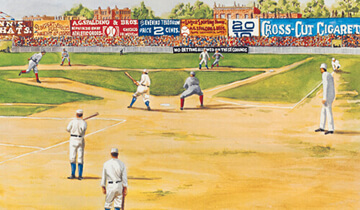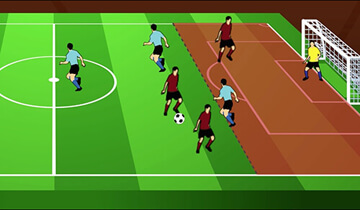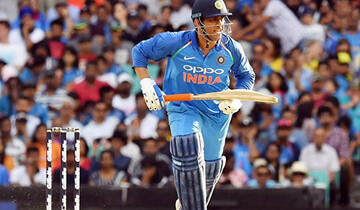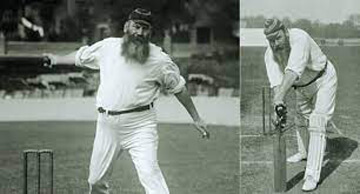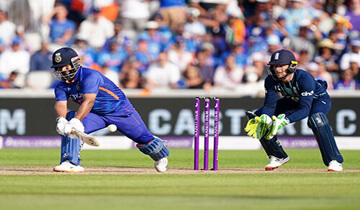A cricket mentor is an experienced player or coach who provides guidance and support to less experienced cricketers to help them improve their game. Having a good mentor can be invaluable for any cricketer looking to take their game to the next level.
Mentors play an extremely important role in cricket. They provide crucial advice and feedback to help cricketers develop the right techniques, mental approach and training strategies to succeed. Good mentorship helps nurture talent and unearth the potential in promising players.
Role of a Cricket Mentor
Guiding and advising players, especially young/inexperienced ones
One of the most important roles of a cricket mentor is to guide and advise players, particularly those who are young or inexperienced. As a mentor, it is crucial to share your knowledge and experience with less experienced players to help them develop their skills and understanding of the game.
You should take time to observe and assess each player’s abilities and weaknesses. Provide constructive feedback and suggestions on how they can improve. Work with them on honing technique, shot selection, fielding skills, bowling variations, and other technical aspects of the game. Teach them the mental side of cricket as well - how to concentrate, remain calm under pressure, analyze the game situation, and make smart decisions.
Build their confidence by highlighting their strengths and talents. Give them advice on effective training methods and practice habits. Set challenges suited to their skill level and encourage them to step outside their comfort zone. As a mentor, being patient and keeping expectations realistic is key to nurturing young talent.
Sharing knowledge and experience to help players develop skills and mental strength
A cricket mentor has a wealth of knowledge gained from years of playing and being involved with the game. Leveraging your experience and sharing insights with less experienced players is an impactful way to aid their development.
From skills like batting technique and bowling variations to tactical understanding of the game, there is a lot you can teach based on your own cricket journey. Share tips and tricks you’ve learned over the years of mastering your craft. Reveal your training and preparation methods that helped hone your skills. Teach them how you developed mental strength and composure under pressure.
Share your experiences of challenging game situations you faced and how you overcame obstacles. Tell inspiring stories of grit and determination in the face of adversity. Instill in them the importance of values like discipline, commitment and teamwork. The knowledge imparted by a mentor gives young players a shortcut to developing well-rounded skills and maturity beyond just talent alone.
Building relationships and trust with team members
For a cricket mentor to truly impact the team, it is crucial to build strong relationships founded on trust. As a mentor, make the effort to connect with each player as an individual. Be approachable and willing to listen to their concerns. Set aside time for one-on-one chats to understand their priorities and challenges.
When team members feel comfortable opening up to you, it establishes trust in the mentor-player dynamic. This not only helps you provide tailored guidance to each player, but also brings the team together. Encourage players to share ideas and perspectives with you and each other. Foster a collaborative, open culture where the team feels like a cohesive unit.
Lead by example - demonstrate integrity and earn respect through your own conduct and sportsmanship. Building trust enables you to motivate players, resolve conflicts, facilitate discussions and give constructive feedback that players take to heart. Your relationship as a trusted mentor gives you the influence to shape the team’s culture and unlock their potential.
Providing feedback and suggestions on technical, tactical, and mental aspects
A big part of a cricket mentor’s role is providing quality feedback and suggestions for improvement across various aspects of the game - technical, tactical and mental.
On the technical side, observe players closely during practice and matches. Offer corrections and tweak techniques on skills like footwork, grip, stroke play, and bowling action. Suggest drills to ingrain good habits. Highlight strengths and areas needing improvement. Provide tools and guidance to enable self-correction.
From a tactical lens, help the team and individuals analyze games. Discuss strategies, field settings and decision making. Suggest ways to read match situations better and think on their feet. Share your experience on how to leverage strengths and expose opponent weaknesses.
Regarding the mental side, teach techniques to optimize mindset, concentration skills, and nerves management. Help identify root causes of poor decision making. Build resilience and self-belief by focusing on process over outcome. Instill good routines around preparation and recovery too.
As a trusted mentor, your observations and recommendations across these three pillars go a long way in uplifting both individual and team performance.
Difference from a Coach
Coaches more focused on training, tactics, results
Coaches have a very defined role within a team or organization. Their primary focus is on improving performance through training, strategy and planning. Coaches are heavily involved in all aspects of the team - from player/employee selection to developing tactics and training plans. They are responsible for the end results, so they prioritize skills development and performance optimization. Coaches provide instruction, feedback and guidance with the explicit goal of enhancing capabilities and achieving success.
Mentors focus on experience-sharing, relationships, mindset
Unlike coaches, mentors play more of an advisory role. They act as a trusted counselor, building close collaborative relationships. Mentors are focused on sharing wisdom and perspectives to aid in the growth and development of the mentee. Mentoring is about dialogue, listening, and asking thoughtful questions - not telling mentees what to do. Mentors care about helping mentees realize their potential and reach their goals through improved self-confidence and resilience. They pass on knowledge from their own extensive experience to guide mentees’ thinking - leading to greater self-awareness and personal growth.
Coaches have more defined responsibilities like team selection, planning, etc.
Coaches have clearly delineated duties within their team or organization. Key responsibilities include selecting team members, developing play strategies and training plans, analyzing performance data, overseeing drills and practices, and making tactical decisions during competitions. Coaches have authority over the full plan and direction of the team. They are directly accountable for the results, so they control all aspects of preparation and performance management. From initial tryouts to post-season review, coaches are hands-on leaders responsible for execution.
Mentors play an advisory role, not actively involved in all team affairs
Unlike the hands-on role of coaches, mentors serve primarily as advisors. They do not have defined authority over team or organizational direction. Mentors provide guidance and perspective but allow mentees to drive their own development and make final decisions themselves. Mentoring relationships are voluntary and mentees choose when to seek advice and which insights to take on board. Mentors might make introductions or share resources, but they are not actively directing day-to-day activities and performance like a coach. Mentoring supplements other learning - it is detached support focused on empowerment versus direct oversight.
In summary, coaches and mentors both provide valuable support, but have different orientations. Coaches are focused on tangible skills and results, taking an active role in training and management. Mentors play an advisory role centered on intangible mindsets and relationships to facilitate mentee self-improvement and growth. The complementary strengths can allow coaches and mentors to work together to develop well-rounded individuals and successful teams.
When Mentors are Appointed
Usually former players who’ve had successful careers
Appointing mentors who are former players with successful careers is a common practice in many sports. The mentors are usually veterans of the game who have a wealth of experience to draw from. They understand what it takes mentally and physically to compete at the highest levels.
Having played for many years, these mentors have been in high-pressure situations before. They know how to handle the stress, adversity, and challenges that come with major tournaments and competitions. Their experience gives them credibility with the players they are mentoring. The players respect someone who has “been there and done that” at a very high level.
These former players have a lot of wisdom to impart. They can provide advice on technical skills, strategy and tactics, training regimes, recovery, nutrition, leadership, communication, and more. Their guidance can help prepare the team physically and mentally for the rigors of tournament play.
For major tournaments where experience is valued
Mentors are most commonly appointed for major tournaments where experience is highly valued. These tournaments usually involve higher stakes against tougher competition.
For example, in tennis, former champions like Ivan Lendl, Boris Becker, and Stefan Edberg have been appointed as mentors for younger players heading into Grand Slam tournaments. Their expertise from winning multiple majors themselves is invaluable.
At the Olympics, veteran athletes who have medaled in previous Games are often taken on as mentors. They can help first-time Olympians manage expectations, nerves, media obligations, and the overall whirlwind of the Olympic experience.
In soccer’s World Cup, former World Cup winners will be recruited as mentors. Their understanding of soccer at the absolute highest level is essential for teams with ambitions of winning it all.
To guide inexperienced captains or young teams
Mentors are useful for teams that have an inexperienced captain or a squad with a lot of young players getting their first taste of high-level competition.
The mentor takes some of the pressure off the captain’s shoulders. The mentor can advise the captain on leadership strategies and responsibilities. With a young squad, the mentor is like a father figure who steers the team in the right direction.
The mentor can work with individuals who are exceptionally skilled but lack big tournament know-how. Their tips and guidance get the youngsters ready for the different stage.
Overall, the wisdom and experience brought by appointed veteran mentors is extremely valuable. They have been there before, so they know what to expect and how to optimize preparation. Their expertise and advice boosts the team’s chances for successful tournament runs.
Benefits of Having a Mentor
Lessen burden on captain and coach
Having a mentor on a sports team can help lessen the burden on the team captain and coach. The captain and coach already have a lot on their plates trying to manage the team, develop game strategy, and motivate players. A mentor can provide additional guidance and leadership so the captain and coach are not overwhelmed with responsibilities.
Some things a mentor can help with include:
- Providing individualized training and feedback to players. A mentor may have more time than the coach to work one-on-one with players on skills and development areas.
- Serving as an extra voice of reason and leadership. The mentor can step in if the captain needs backup explaining a concept or motivating the team.
- Handling some administrative tasks. Mentors may be able to assist with planning travel, reviewing game film, or other tasks that don’t require the direct input of the coach. This frees up valuable time for the coach to focus on high-level strategy.
Having the support of a mentor lightens the load so the captain and coach can focus their energy where it is needed most.
Provide guidance from their own playing days
A valuable thing a mentor brings to a team is the wisdom and experience from their own playing career. Young players can learn a tremendous amount from someone who has already been through the highs and lows of competition.
Some of the guidance a mentor can provide includes:
- Sharing tips and strategies that worked for them. Drawing on their successful track record, they can pass along insights to players.
- Warning about potential pitfalls to avoid. Having already made mistakes themselves, they can help players sidestep some common errors.
- Putting challenges in perspective. When players face adversity, a mentor can explain how they worked through similar situations.
- Serving as a sounding board. Players can run situations by the mentor to get their take and opinion based on prior experience.
Having these real-world examples helps demonstrate concepts and advice rather than just discussing them in the abstract. Players appreciate being able to leverage the mentor’s history and knowledge to optimize their own performance.
Help improve team environment and player camaraderie
In addition to working with players on an individual level, an effective mentor also keeps a pulse on team dynamics. They can serve as an objective observer to ensure a positive team environment and culture.
Some of the ways a mentor improves team camaraderie include:
- Building relationships. The mentor makes an effort to connect with each player individually. This helps the team bond when players feel recognized and understood.
- Resolving conflicts. The mentor can step in early when interpersonal issues arise between players. Addressing problems quickly prevents tension from spreading.
- Promoting collaboration. They highlight the importance of teamwork and encourage players to support one another on and off the field.
- Keeping morale high. When spirits are down after a tough loss, the mentor lifts players up with positive reinforcement and perspective.
Having this additional guidance and support from the mentor enables the team to come together. The mentor’s insights help foster a cooperative, winning culture.
Share insights on high pressure situations
One of the most valuable benefits a mentor provides is helping players navigate high stakes games and situations. Drawing from their career experience performing under pressure, they can provide tips and perspective.
Some of the ways a mentor helps with pressure situations include:
- Keeping emotions under control. They emphasize staying calm and preventing nerves from spiking in important moments.
- Sticking to fundamentals. They advise relying on technique and avoiding risky improvisation in pressure scenarios.
- Focusing on the moment. Dwelling on past mistakes or thinking too far ahead causes problems. The mentor stresses staying mentally grounded in the present.
- Maintaining confidence. By recalling past successes under pressure, they build players’ belief to come through when it matters most.
- Adjusting to game situations. The mentor explains how to adapt techniques and mindset based on game conditions and opponent strategy.
This expertise at managing high leverage situations helps players elevate their performance. Drawing on the mentor’s insights, they gain greater confidence and clarity executing in the clutch.
Having an experienced mentor is an invaluable asset for any team. Their guidance lessens the burden on other leaders, provides wise direction from their career, improves team dynamics, and helps players optimize their mentality and strategy in high stakes moments. Investing in a knowledgeable, dedicated mentor pays huge dividends for team success and player development.
Notable Mentors in Cricket History
Imran Khan and the Pakistan National Team
Imran Khan, the legendary former Pakistan captain, mentored a golden generation of Pakistani cricketers as captain in the 1980s and 1990s. He helped players like Wasim Akram, Waqar Younis, Inzamam-ul-Haq, and Saeed Anwar maximize their talents and achieve great success for Pakistan.
Rahul Dravid and the India Under-19 Team
Rahul Dravid, known as “The Wall” for his rock solid batting technique, served as coach for the India Under-19 team from 2016-2019. Under his mentorship, future Indian stars like Prithvi Shaw, Shubman Gill, and Rishabh Pant first made names for themselves on the international stage.
Ricky Ponting and Australia’s Next Generation
Steve Smith, David Warner, and Pat Cummins are among the current Australian stars who have benefitted from Ricky Ponting’s mentorship. As a batting coach, Ponting has helped instill the same grit and determination that characterized his own legendary career.
Stephen Fleming and the Blackcaps
Stephen Fleming, New Zealand’s most successful test captain, went on to become a mentor to the next generation of Blackcaps stars. As coach from 2008-2012, he guided players like Brendon McCullum, Ross Taylor, and Kane Williamson through formative stages of their careers. His leadership played a key role in transitioning New Zealand into a cricketing powerhouse.
Andy Flower and England’s Rise to #1
Andy Flower took over as England coach in 2009 and instilled a disciplined, professional culture that took them to the top of the test rankings. Players like Alistair Cook, James Anderson, and Graeme Swann achieved career-best form under Flower’s intense training methods and attention to minute details. Though his tenure ended after the 2013/14 Ashes whitewash, Flower set the platform for England’s success.
Wasim Jaffer and Domestic Cricket in India
Wasim Jaffer, a domestic cricket giant with over 19,000 first-class runs, has recently taken to mentorship roles across India’s domestic circuits. For Vidarbha and other sides, Jaffer’s technical knowledge and mental strength have been invaluable in shaping talented young batsmen. With his help, Vidarbha won consecutive Ranji Trophy titles in 2017-18 and 2018-19.
Conclusion
Mentorship is a critical component of success in cricket. As discussed, mentors play an invaluable role guiding less experienced cricketers on technical, tactical, and mental aspects of the game. They provide tailored feedback to aid development, share wisdom gained from their playing days, foster team camaraderie, and help players optimize performance under pressure. The benefits of dedicated mentorship are clearly evidenced throughout cricket history, with iconic mentoring relationships such as Imran Khan and the Pakistan team of the 1980s/90s, Rahul Dravid and India’s U19 stars, and Ricky Ponting with Australia’s current generation. While coaches focus more on direct training and instruction, mentors take a nurturing approach centered on facilitation and support. Investing in knowledgeable mentors pays dividends for unlocking individual potential and building team culture. With so many promising young talents emerging today, quality mentorship will be key to their continued growth and success on the big stage. The legacy of great mentors like Wasim Akram, Rahul Dravid and Andy Flower should be carried forward by retired players stepping into advisory roles and helping elevate the next generation of cricketers.



































